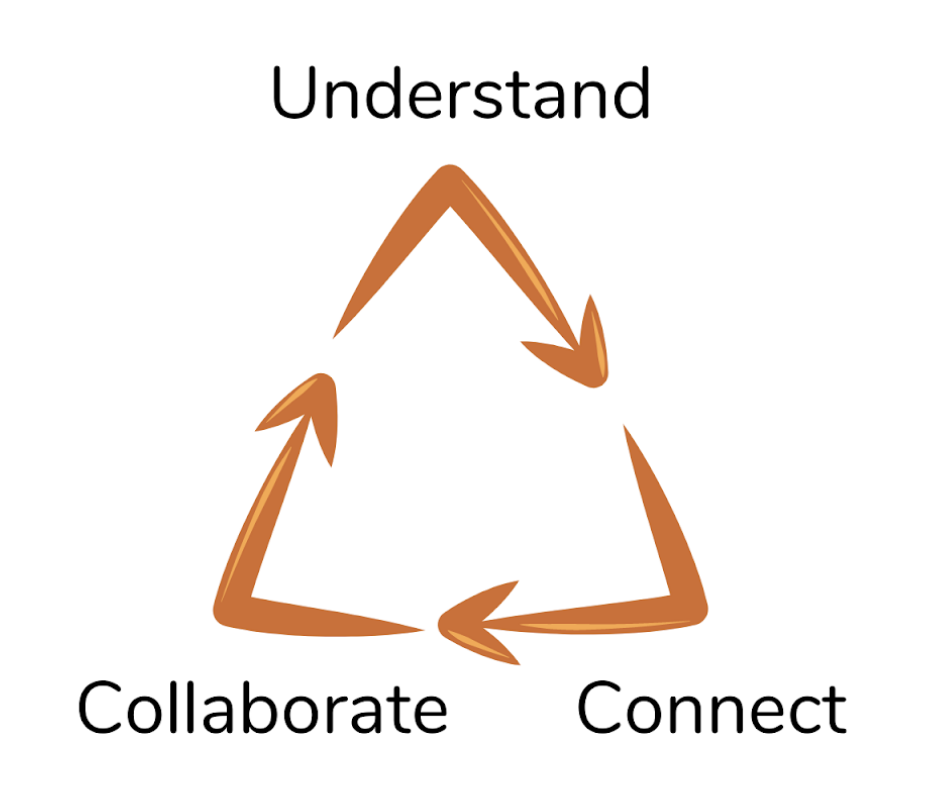Getting Started With Community Peacebuilding: The Journey of Loving Your Neighbor and Transforming Your Community
“There comes a point where we need to stop just pulling people out of the river. We need to go upstream and find out why they’re falling in.”
- Commonly attributed to Desmond Tutu
“…work for the peace and prosperity of the city where I sent you into exile. Pray to the Lord for it, for its welfare will determine your welfare.”
- Jeremiah 29:7
“...Love your neighbor as yourself…”
- Mark 12:31
What does it actually mean to be a good neighbor? To “love your neighbor as yourself”? How does that shape the ways we show up in our community?
(In a hurry? Check out our new resource, Getting Started With Community Peacebuilding, to get started in your own neighborhood!)
(this is a photo from Rogers Park, Chicago, where I first worked after college)
When I first started neighborhood-based ministry, I couldn’t wait to dive into the challenges that I knew many of my neighbors were facing. I thought I was ready to contend with all the hurt and violence of the world. I knew many neighbors had stories shaped by violence, migration, poverty, racism, and more. I knew that social isolation, fear, and hopelessness were common. And I was sure that if I could just love each one of them enough, inspire them enough, empower them enough, then the community would start to change one person at a time.
In those early years, I was part of some cool and meaningful projects. I mentored youth and helped develop leadership skills in many of them. I taught conflict resolution skills to kids. I supported neighbors in organizing community-wide celebrations and facilitated relationship-building dialogue interfaith events. I was genuinely contributing to the wellbeing of my neighbors.
But my contribution was still limited. There were many things I needed to learn and unlearn, such as my saviorism mindset, my glamorization of the “problems” in the community, and the perception that I was disconnected from the harm around me.
One major hindrance? I was so focused on loving the individual neighbors around me that I didn’t know how to love the community as a whole. I wanted to see my neighbors thrive and knew how to help them do that individually—connecting with and caring for neighbors, mentoring and tutoring students, supporting new leaders. But the underlying issues that caused their pain? The underfunded schools, the lack of living wage jobs, the racial and religious bias of many institutions, the exorbitant housing costs? I could name these systemic issues but was ill-equipped to connect the ways I showed up with neighbors with the ways I needed to show up for change in my whole community.
This integration between loving neighbors and the whole community is the core of what Peace Catalyst means when we invite people to become community peacebuilders along with us.
What does this journey look like? How do we kindle the compassionate spirit that marked my early desire to love and serve my neighbors, while also learning that loving them means going “upstream” with them to transform the underlying conditions and conflicts causing us harm?
First, we seek to Understand. We understand ourselves—who are we, what are we passionate about, where do we come from? We understand our community—who is around us, what is the history of this place, what stories and experiences are shaping people’s beliefs and choices? We understand ourselves as part of our community—where do we call home, to whom are we connected, and what skills, values, experiences, and identities are we bringing with us?
Second, we Connect, because relationships are the heart of peacebuilding. We connect with our neighbors, both those who are similar to us and those who seem very different than us. We knock on doors, we bake cookies and casseroles, we show up at community events. We share stories, find common ground, honor differences, and build friendships.
Third, we Collaborate. This is where we move upstream with our neighbors. This is where our collective experiences, stories, skills, and values weave together as we lean into places of tension or shared pain points. Maybe we’re saddened by how disconnected our neighbors are, and we work together to build community. Perhaps we’re concerned about an urgent crisis, and we work together to provide immediate relief. We might see barriers to our community’s long-term thriving and work together to develop new resources and opportunities for a better future. Or we may see the ways that the policies and decisions from those in power are harming the community and activate to assert the community’s own voice and power.
Wherever we find ourselves in this ecosystem of healthy community transformation, we do so bringing our full selves to our communities, honoring the wisdom and leadership of our neighbors, and dreaming of a future peace, a future common good, in which we all might live and flourish together.
What are some ways you’re practicing community peacebuilding—moving upriver—in your own community?
Want to learn more, or want ideas to get started with community peacebuilding? Check out our newest resource, Getting Started With Community Peacebuilding! We’d love to hear how you use it in your own area.
Want to connect with fellow peacebuilders from across the world? Join the growing community at the Christian Peacebuilding Network!
Wish you could volunteer to build peace with Peace Catalyst, in your own community? Plans are in the works. Sign up here to tell us that you’re interested!






